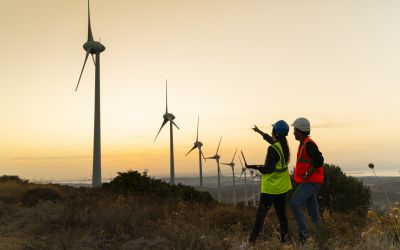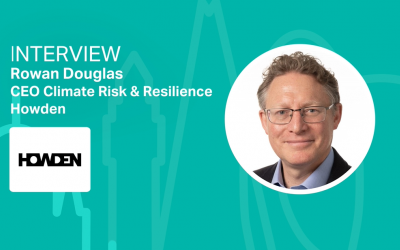ESA: Achieving a circular-economy is a key component of a net-zero carbon future
As the opportunity to keep global warming below 2°C, thereby avoiding the worst consequences of climate change, is fast diminishing, national and local governments around the world have declared a climate emergency.

As the opportunity to keep global warming below 2°C, thereby avoiding the worst consequences of climate change, is fast diminishing, national and local governments around the world have declared a climate emergency. In doing so, these governments have stressed the need for concerted global action to stop human-caused global warming. The ESA, which represents a significant proportion of the United Kingdom’s recycling and waste management sector, is committed to playing its part by driving the UK towards a more circular economy and to achieve net-zero carbon emissions among its membership.
Our sector has the potential to help avoid and reduce emissions right across the economy. As a service industry, we manage around 100 million tonnes of waste materials each year on behalf of our customers. Recycling a large proportion of this keeps millions of tonnes of essential materials in economic use, improving UK resource-efficiency and significantly reducing net greenhouse gas emissions, while the sector also contributes around nine per cent of the UK’s renewable electricity, generating nearly 14 GWh per year through Energy from Waste (EfW), landfill gas capture and anaerobic digestion.
The ESA membership is committed to a net-zero strategy that will significantly reduce emissions across all parts of the industry in order to reach carbon neutrality by 2040. Our strategy is based around three key principles – developing a clear and consistent methodology to quantify the greenhouse gas (GHG) emissions of our sector and monitor progress; introducing clear targets to drive performance; and assessing the key actions necessary for our sector to achieve net-zero.
To that end, we have established a cross-membership Climate Change Working Group tasked with establishing the methodology by which we measure performance and the actions required to get us to net-zero – certainly before the Government’s own 2050 target.
Our measurement methodology will account for the direct and indirect GHG emissions of the sector’s services and operations, including the carbon benefits of reuse and recycling; the power, heat, recycling and sanitary benefits of energy recovery from residual waste, and the legacy emissions from landfill along with other relevant factors. ESA member performance will be monitored using this methodology and we will report regularly through our new annual report, the first of which is due to be published later this year.
Although the working group is currently assessing the necessary actions, it is clear that the strategy must involve reducing residual waste and enhancing recycling at its core. Further efficiencies must be delivered in energy from waste, including greater use of heat offtake, and fossil-based plastic materials will have to be removed from EfW inputs. Emissions from the transport of waste and secondary materials, and the amount of energy used to power our sector’s infrastructure, including offices and other buildings, will also have to be considered.
ESA members will place the net-zero target at the heart of their business strategy and operations, but as always, this needs to be supported across the Government policy spectrum and through subsequent action from other stakeholders such as local authorities and waste producers, to successfully reach the net-zero goal.






